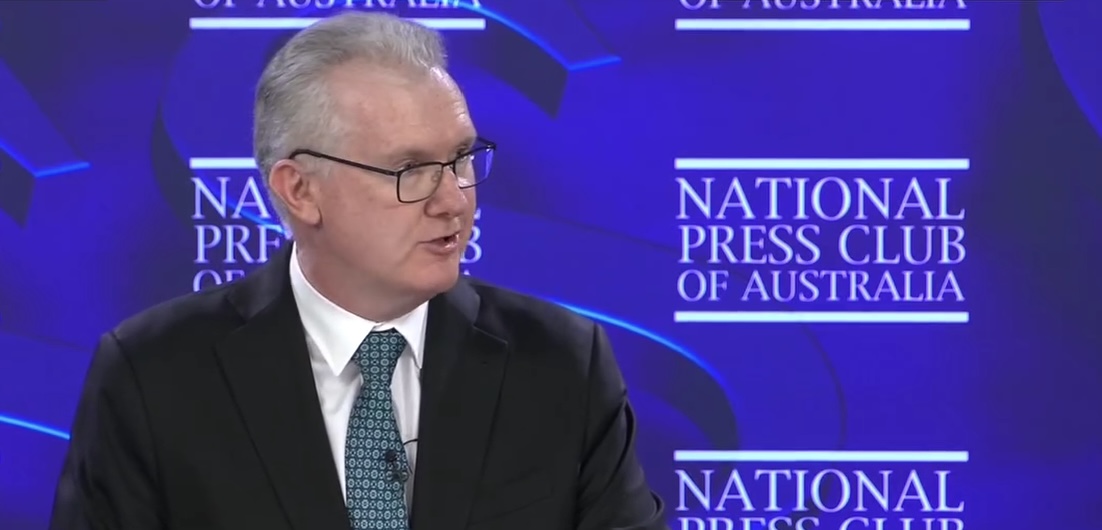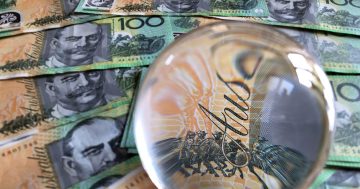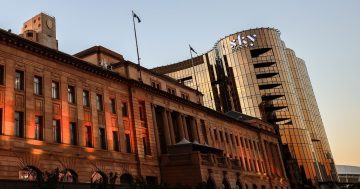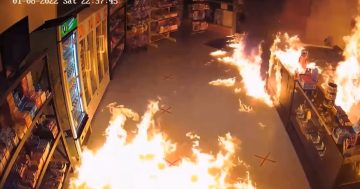
Home Affairs Minister Tony Burke is cracking down on money laundering. Photo: Facebook.
Australia’s banks will now get access to immigration data so they can help the Federal Government track organised crime linked to international student accounts.
Money laundering through ‘mule’ accounts has become an increasing problem in Australia, but banks have been somewhat restricted in how they determine which accounts are bogus and being used for criminal activities.
Criminals buy or ‘rent’ legitimate bank accounts from international students and use them to transfer stolen money.
In some cases, but not all, the students are unaware what their accounts have been used for after they have returned home.
Australian Federal Police have this year warned international students against falling for these “side hustle jobs” advertised through social media.
Home Affairs Minister Tony Burke used his address to the National Press Club on Thursday (16 October) to outline rule changes he says will crack down on mule accounts supposedly belonging to overseas students but who have actually left the country.
“At the moment, the banks, if they think there’s something suspicious, don’t have access to the immigration data to work out if this account that is behaving quite differently belongs to someone who is meant to have left the country,” the minister said.
“For that reason, I’m updating the visa entitlement verification online terms and conditions.
“Financial institutions will as a result of this be able to get access to visa information if they believe they’re dealing with a mule account. To determine whether or not someone in fact is likely to have left Australia.”
Mr Burke said the changes aimed to equip banks with enough correct information to help them manage risk and prevent accounts falling into the wrong hands.
The minister also took aim at cryptocurrency ATMs being used for fraud and to scam people.
These ATMs allow cash to be converted into cryptocurrency, but Mr Burke said they have become increasingly used for money laundering, financing terrorism and other serious crimes.
He said while crypto ATMs were not everywhere, Australia now came third in the world rankings of these machines.
“And we got there pretty quickly. Six years ago, Australia had 23 of them. Three years ago, Australia had 200 of them. Now, we have 2000 of them,” he said.
In 2024, the Australian Transaction Reports and Analysis Centre (Austrac) linked cryptocurrency ATMs to money laundering, scams and fraud, illegal substances and child exploitation.
“When they looked at the top users, the top users who are putting the most money into crypto ATMs, 85 per cent of the money going through for the top users involved scams or money mules,” Mr Burke said.
“I’m not pretending for a minute that everybody who goes in and uses a crypto ATM is a problem, but proportionately, what’s happening is a significant problem in an area which is much harder for us to trace.
“I want Austrac to have the power to restrict, or if it decides to prohibit, high-risk products, and be in no doubt crypto ATMs are a high-risk product.”
Legislation is currently being drafted to give Austrac those powers.
Austrac’s CEO Brendan Thomas welcomed the news, saying if the proposed changes are passed into law his agency will be ready to use them.
“We’re still seeing an unacceptable risk of money laundering across some channels,” Mr Thomas said.
“Having a power like this enables the CEO to adapt to the evolving risk environment in more responsive ways.
“For example, crypto transactions are becoming integrated into money laundering methodologies and crypto ATMs present even more risks due to the ability to turn cash into digital currency that can be sent instantly and virtually anonymously across the globe.”
The minister also described how Australia’s threat environment had dramatically changed in the past couple of decades.
He said many areas of the Home Affairs portfolio in 1997 were not considered to be converging or overlaying.
But more recent events such as the fake terrorism plot involving a caravan in Dural, NSW and the firebombing of Melbourne’ s Adass Israel synagogue involved a convergence of agencies at federal and state levels working together.
“We would have separate conversations about terrorism, child exploitation, cyber crime, money laundering,” he said.
“There may be occasional overlap, but you could have a sensible conversation on each one in isolation.
“That’s no longer the threat environment in Australia …
“When we have a convergence of threats, we need to have a convergence of protection.”
Original Article published by Chris Johnson on Region Canberra.






